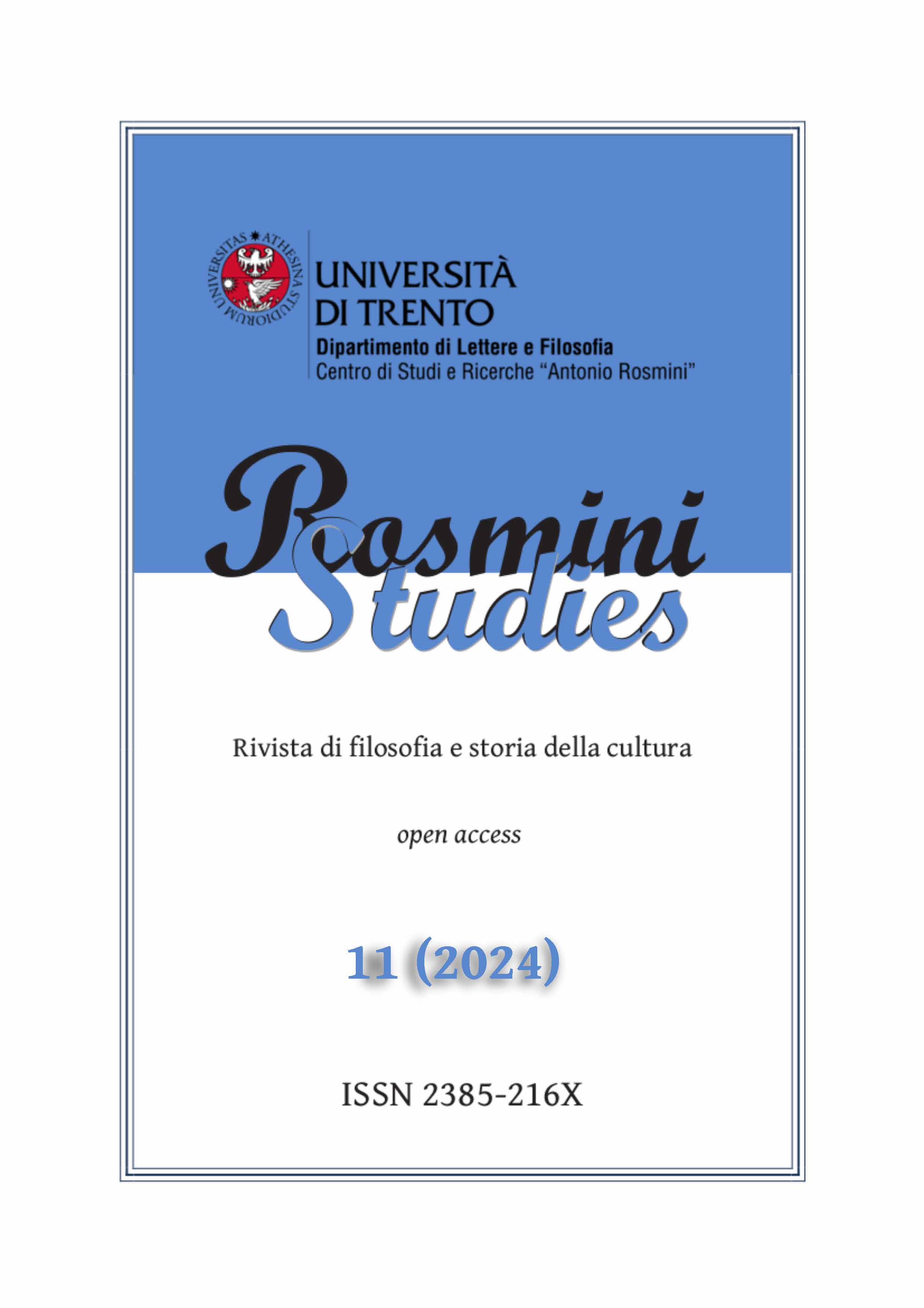Miracles in the Philosophy of John Locke
DOI:
https://doi.org/10.15168/2385-216X/3005Abstract
The distinction between “above Reason” and “contrary to Reason” is already acquired when Locke makes it his own, taking for granted that it would be the ruin of humanity if we were to reject as contrary to reason everything that we are not able to ascertain exclusively through reason. In fact, what remains inaccessible to our intellect is not necessarily contrary to reason. Therefore, without falling into irrationalist fideism, we must admit that something is true despite its incomprehensibility. Boyle's exegetical and theological research is a prelude to that of Locke: both appear far from the two extremes of fideism and rationalism, of unconditional obedience to authority and deism. It is not possible to fully understand Locke's position on miracles if he does not take into account his theory of knowledge and the role that sensation plays in it. Miracles, with which God communicates something extraordinary to men, are sensible facts, which we become aware of in the same way in which we perceive facts of common experience. If God intends to convey some truth to man, he has two alternatives: either he provides proof of this truth through the exercise of natural reason on man’s initiative or he communicates his will that assent be given by his authority; in this second case He must inspire in us the persuasion that the revealed proposition comes from Him through some sign or proof that does not deceive. Reason is ultimately the judge, whatever way God chooses to transmit his truths to men. By using his own reason, man affirms his own autonomy by continuing to depend on God. The obedience that man owes to God concerns first of all the rational nature in which God has constituted him so that, ignoring reason, man disobeys to God who prescribes him to use it. This is the sense of the identity of reason and revelation, on which all of Locke's research is based. On the one hand, revelation is subordinate to reason, since revelation is authentic only if it exhibits a mark that reason can approve; on the other hand, reason is not a faculty that man has given himself, but that he has received from God, in the same way he then received the actual revelation. What evidence do we need so that we can take self-proclaimed revelations seriously? The testimony we need is an external sign, which unequivocally convinces us of the divine provenance of certain revelations. These external signs, which convince reason, are miracles. Scripture is revelation in accordance with reason, because it contains the extraordinary signs of the divine origin of the messages and prescriptions reported therein. However, the miracles to which Locke attributes the function of validating revelation are in turn validated solely by Scripture: it is easy to recognize in them a petitio rincipii or circular argument.
Downloads
Published
Issue
Section
License
Copyright (c) 2024 Rosmini Studies

This work is licensed under a Creative Commons Attribution-NonCommercial-NoDerivatives 4.0 International License.



